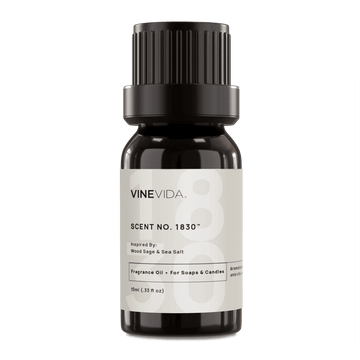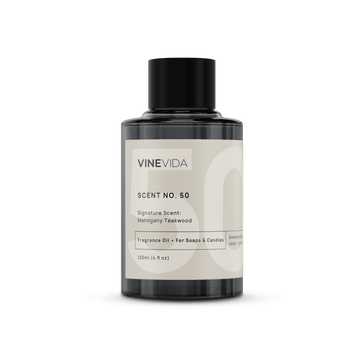We have been asked whether essential oils are safe for dogs and cats after a video went viral about some dogs that had been irritated by diffusers containing cinnamon and eucalyptus oils.
There are several aspects to the question of whether essential oils are safe for pets, because of course, not all animals are the same, so we need to address each type in turn. We’ll start with the most complex one.
Are Essential Oils Safe For Cats?
As humans, we metabolize essential oils through our livers. In very simplistic terms, this means we break down each droplet into manageable pieces to go on to the parts that need them, and these parts are much, much smaller.
Cats, however, do not have the enzyme that allows this to happen, so their bodies do not break them down. So if you imagine that a cat is asleep on the couch, a droplet from a diffuser may fall onto its fur, and then it licks it. This is an undiluted droplet, which is now charging around its body. In the case of certain essential oils (which I will list in a moment), this can be poisonous.
Sometimes, people do use essential oils on cats (we always used to put valerian oil on one of our cats’ ears if she had to go in the car to the vet) but this is topical use, in places where the cat would struggle to lick and it would have been diluted (to 0.5%).
Consequently, at first appearance, it would seem that dilution is a much safer way but note there are three potential issues with using essential oils in a diffuser a) that the oil would be poisonous b) that is undiluted, where you would ordinarily have diluted it right down in a carrier if you were going to use it on yourself c) this would be orally ingested by the cat.
The main constituents that cause cat issues are phenols, which are usually found in spices and hot oils. The oils that we use for fighting infection like cinnamon and cloves.
Citrus oils and eucalyptus can also cause them issues if small molecules drop onto their fur, then they groom themselves.
Essential Oils to Avoid Around Cats
Avoid Eucalyptus, Tea-tree, Cinnamon, and citrus oils like Lemon, Lime, Orange, Mandarin, Bergamot, Grapefruit, Peppermint, Pine, Wintergreen, and Ylang-Ylang essential oils.
However, the situation does have more layers.
Cats love things like roses, lavender, and geranium which probably remind them of lazing in the sun, just as they do for us.
However, their sense of smell is much more powerful than ours.
The smell is a cat's primary method of identifying people and objects. Humans have 5 million odor receptors in their noses, but cats have more than 200 million; Statistically, their sense of smell is 14 times better than yours. Cats often find even “benign oils” troublesome, because the smell is just too strong. Recognize that just because lavender is cited as good for soothing headaches, whether human or feline, it can give you one too.
By all means, use lavender oil when your cat is around, but only in small dilutions, and most importantly, make sure you leave a door open for her so that she can choose to leave when she has had enough.
Cats, also taste odor molecules in the air, so you might also find that she licks her lips more. Ensure plenty is available for her to drink when your diffuser is on.
Just like humans, every cat is different. Some react more to things than others. It’s no different from how some are jumpy at noises for example, whereas others are not. Essential oils can irritate a cat’s mucus membranes and even lead to respiratory poisoning.
You must always leave a door open so they can leave the room when they have had enough, regardless of which oil you are diffusing.
Symptoms of Poisoning
All that being said it’s always worth keeping an eye out, when you introduce something new into the house, to see how it affects everyone. Some cats develop runny noses or itchy eyes from being around strong fragrances. They can also experience burning sensations in their noses or throats so also watch out for them drinking more water than usual. Drooling can signal they feel nauseous. Keep an eye out for vomiting or breathing difficulties. Respiratory irritation can often be mistaken for them trying to cough up hairballs.
If you notice any of these things, get them out into the fresh air. Moving them away from the scent usually helps, but if it doesn’t then seek urgent veterinary assistance.
Remember - what you are witnessing is poisoning. They need to be seen straight away. Take your bottle of oil with you so the vet can see exactly what he is dealing with.
Read more:
Is Lavender Essential Oil Safe For Cats?
Is Peppermint Essential Oil Safe For Cats?
Is Orange Essential Oil Safe For Cats?
Is Lemon Essential Oil Safe For Cats?
Is Eucalyptus Essential Oil Safe for Cats?
Is Tea Tree Essential Oil Safe for Cats?
Are Essential Oils Safe to Diffuse Around Dogs
So for ease, I made a video about this a couple of years ago during COVID.
The overarching message is that essential oils are safe for dogs if they are used correctly.
They do have the same enzyme as we do, and dogs manage essential oils well. As with cats though, they have a hugely inflated sense of smell to ours. You must always leave the door open for them to leave.
There are a couple of interesting things for you to see, including how much stronger they experience the oil, but also how they interact with it.
The important thing about essential oils for dogs is they can “overdose” on scent very easily. Don’t use large amounts, and don’t diffuse for too long.
You may have seen that dogs are very good at self-medicating. They have certain grasses that they like to eat when they feel ill, for example. This is called zoo pharmacognosy. If you want to learn more about that, look for the work by Caroline Ingraham, in particular, her book called Help Your Dog To Heal Itself. She talks about how dogs are very good at showing you which oils they like, and indeed need, and those that they don’t like also.
Like cats, dogs also taste odor molecules in the air, so you might also find that she licks her lips more. Ensure plenty is available for them to drink when your diffuser is on and always leave the door open.
Read more:
Is Tea Tree Essential Oil Safe For Dogs?
Is Cedarwood Oil Safe For Dogs?
Is Lemongrass Essential Oil Safe For Dogs?
Is Orange Essential Oil Safe For Dogs?
Is Lemon Essential Oil Safe For Dogs?
Is it Safe To Diffuse Essential Oils Near Aquariums?
Again, think about how much you are diffusing and for how long.
Essential oils like bay laurel and tea tree are used extensively in aquarium preparations for slime coats for example. It is not going to be that problematic if the odd drop falls into the tank.
Recognize that oils and water do not mix. So, do not think that one drop of oil will be diluted in the water. It won’t. It will float on the top. So, again, a couple of micro drops are not going to cause too many issues. However, over time you will get a film on the top of water, which is undiluted. If you have fish that come up to gulp air, they will go straight into an oil slick of potentially irritating oils.
If you do like diffusing essential oils, it may be worth putting a lid on your aquarium.
Is it Safe To Diffuse Essential Oils Around Reptiles?
Snakes and lizards do not like essential oils. This is covered in depth here.
VineVida Safety Guidelines
We do have safety documents with each oil, including maximum dilutions and safety data for each oil. (Look under the picture on the product listing. ) These also include specific notes for pets too.
Conclusions
Are essential oils safe to diffuse around pets?
Yes, usually, but always ensure they can leave the room, use very small amounts of oil, and always keep water available.














